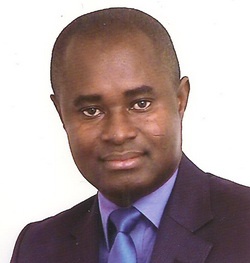
CHIEF JUSTICE Georgina Theodora Wood has called for collaboration between lawyers and judges in order to build a strong judiciary in the country.
Justice Wood said the judiciary was not soliciting blind allegiance or loyalty from the Ghana Bar Association, but observed that it was only through that combined effort that a greater number of people could access justice.
The Chief Justice made this comment when she enrolled 206 newly-qualified lawyers yesterday to begin the practice of their noble profession at a short and blissful ceremony in Accra.
She applauded the bar for taking steps in improving their advocacy for human rights by searching for ways and means of supplementing legal aid through pro bono work as done in other jurisdictions.
At the well-attended programme held at the Great Hall of the University of Ghana, the Chief Justice also debunked assertions that there were too many lawyers in the country.
According to her, in the global perspective, that assertion could not be held to be true as legal practitioners had diversified roles in building a better Ghana.
“When we look at things realistically and from a global perspective, having regarded our population size and the work of the modern lawyer, there are not too many lawyers. Law is not only about litigation.
“We need lawyers in central and local government service, in regulatory institutions such as PURC, in investment and business such as mining, petroleum sectors, ICT, academia, politics and diplomacy,” she said.
The bar, she observed, had contributed immensely to the advocacy of human rights, democracy and independence of the judiciary, citing John Mensah Sarbah, Sir Arku Korsah, the Big Six and many others in present day as role models to be emulated by these lawyers.
“You must also contribute your quota, not only on the human rights front but in the mundane and yet important area of community work,” Mrs. Wood added. She advised the lawyers to aspire to be judges.
The Chief Justice, using herself and her colleague Supreme Court Judge, Justice Charles Brobbey as a form of inspiration, advised the new lawyers to start their career from the lowest rung of the judicial ladder and that with hardwork, integrity, passion for justice, patience and dogged determination they could reach the utmost top of the ladder.
She reminded them of the challenges ahead of them but encouraged them, especially, the female ones that those challenges were surmountable once they were ready to exhibit a high sense of discipline, tolerance and respect for the values of the society they found themselves in.
“As you prepare to enter the world of lawyers, it is appropriate for me to caution that ahead of your joyous mood lies another journey which will demand of you that you exhibit a practical demonstration of the knowledge you have acquired to the benefit of society at large”.
She also commended parents and guardians who made it possible for the dreams of the graduands to become a reality.
Eight of the grauduands received awards for their excellent performance in their academic work. A female student, Linda Mensah, emerged the overall best student and received the Mensah Sarbah award.
The others were Peter Osei-Asamoah, best student in civil procedure, Moses Kwadwo Beick Baffour, best student in family law, Augustine Beleksuun Kidisil, best student in advocacy and legal ethics and interpretation of deeds and status, Pauline Ayiku, best student in conveyancing and drafting, Solomon Barimah, best student in legal accountancy.
Adelaide Kobiri took the best student in industrial law, Florence Mensah, best student in law of evidence, Ruby Kittah, best student in company law and practice, Candy Amoako-Arhin, best student in criminal procedure, Mimi Afriyie, best student in legislative drafting, Eric Ansah, best student in the law and practice of banking and Bobby Banson, best student in law of taxation.
James Agyenim-Boateng, Deputy Minister for Tourism, Johnny Kweku Klutse and Stephen Sah, court correspondent for Daily Graphic, were among the new lawyers.